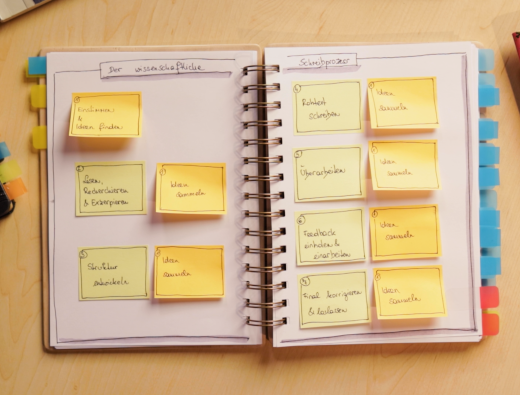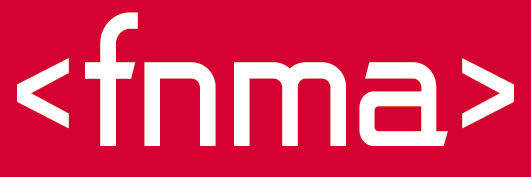
The idea was born after a guest lecture by the scientific expert for digital teaching Dr. Christopher Könitz in the course of the "Digital Learning Teatime" format at FHWien der WKW and finally resulted in a cooperation for this basic course.
Christopher Könitz is an expert in the sustainable establishment of e-learning in educational organizations. With over 15 years of experience in the field of digital learning, he combines technology, didactics, design and resources to create innovative educational programs. He works full-time at Wismar University of Applied Sciences, where he puts his expertise into practice. His life motto "Educate freedom" is also reflected on his YouTube channel "UpBilden". On this channel, he inspires people to discover and use their own educational opportunities, especially in times of growing social and digital inequalities (www.koenitz.net).
Anastasia Baillie-Spegalskaya Instructional designer and e-learning developer since 2015. At the Competence Center for E-Learning at FHWien der WKW, she manages and produces e-learning content and provides strategic advice on the development of asynchronous courses. In her work, she combines her extensive and varied experience in journalism, marketing and content production.
Quality Assurance
Wolfgang RugeJan Zyla
Jasmin Naghmouchi
Tobias Schwarzbauer
Who is the course aimed at?
- Teachers
- Educational designers and trainers
- Students of pedagogy
- People interested in e-learning
The six lessons of the MOOC cover the fundamentals of e-learning and the key production process steps, from the initial idea to successful implementation, supplemented with tips on how to avoid common mistakes in production:
- Setting Goals and Finding Pathways - Learn how to define clear Learning Goals and estimate the amount of work required for production.
- Technical aspects of e-learning - Learn the technical basics and tools required to create and deliver e-learning courses.
- The 1x1 of Usability - Discover the key principles of usability to ensure your e-learning solutions are intuitive and easy to understand.
- Introduction to Learning Design and Transfer - Gain insights into learning content design and effective knowledge transfer.
- The first prototype - Create your first e-learning prototype and receive valuable feedback.
- Introduction to feedback in e-learning - Learn how to integrate constructive feedback into your courses to enable continuous improvement.
After completing this MOOC, you will be able to
- Design and implement effective e-learning courses with clearly defined Learning Goals and correctly estimate the effort required to produce them,
- find the right format for your e-learning production,
- apply the methods behind the production of intuitive, engaging and effective e-learning design,
- identify the core elements of learning design and implement them in your own projects,
- prepare for the creation of their own e-learning prototype,
- apply various feedback methods in e-learning to continuously improve the effectiveness and quality of your e-learning projects.
Whether you already have experience in e-learning or are just starting out, this course offers valuable insights and practical tips to enhance your e-learning skills.
We recommend that you design your own e-learning project during the course and, using the reflection questions, take into account the fundamental aspects of production. This will help you to ensure, step by step, a high-quality e-learning experience for your learners.

This course was funded by the Forum Neue Medien in der Lehre Austria (fnma) and created by the following experts:
Christina Hollosi-Boiger has been working as a writing trainer and consultant, university experts for didactcs and literacy manager at universities and in companies since 2011. She supports scientific, professional and creative writers on their way to successful texts and also shares her knowledge with teachers who supervise students during their final phase of studies (www.schreibenmitchribs.at).
Katrin Miglar supports students in their scientific theses. Since 2015, she has been working at the FHWien der WKW for the Writing Centre and the Centre for Academic Further Education.
Silke Schwaiger heads the FHWien der WKW Writing Center and, as a writing consultant and trainer, supports students in academic further education on their way to writing their scientific theses. Her work focuses on teaching writing skills, developing and designing new teaching and learning formats, and promoting the exchange of experience and knowledge in the field of writing didactics.
Teresa Baier is a research assistant and writing consultant at the FHWien der WKW Writing Centre. She supports students in writing their theses and guides them through the writing process in one-on-one sessions and workshops on the topic of scientific writing.
Production team
Tobias Schwarzbauer (production management, director, script consultant)
Daniel Singer (camera, director, sound, lighting)
David Köhler (studio support, lighting)
Wolfgang Ruge (production management, continuity)
Anastasia Spegalskaya (iMooX course design)
Michel Mehle (speaker)
Katja Sauer (set design support)
Braco Musanovic (set design support)
Martin Heinzel (set design support)
Joseph Pinter (set design support)

For many students, scientific writing is a real challenge!
Writing scientific texts is challenging because it requires linking complex actions and, at the same time, places different demands on the writer. It involves the correct reproduction and connecting of subject-specific content, knowledge of scientific text types (in terms of structure, addressee reference, etc.), the presentation of one's own research and the formulation of one's own thoughts.
This MOOC describes the phases of the scientific writing process, from the initial idea to the completion of a text. The writing process is unique to each individual and can be divided into steps. In five units, experts show which writing exercises and techniques can be used to overcome obstacles in scientific writing.
Who is the course aimed at?
- Students who are writing scientific texts or theses.
- Teachers who supervise scientific work and would like to use the MOOC or individual videos in their teaching.
- Anyone who does scientific writing and needs support.
This MOOC is designed to help students develop their scientific writing skills independently of their institution. The five units each cover a different aspect of the writing process and include specific writing exercises and techniques to make the course practical and application-oriented.
Unit 1: The scientific writing process
Unit 2: Collecting ideas & recording thoughts
Unit 3: Moving from reading to writing
Unit 4: Structuring topics and content
Unit 5: A sprint to focus
After completing this MOOC, you will be able to...
• break down scientific writing into individual phases or steps,
• arrange the phases of your scientific writing individually,
• apply writing exercises and techniques for specific phases of scientific writing and thereby
• make your writing more efficient and effective and manage your writing project.
None required.
The MOOC consists of five units. Each unit includes an inspirational video, reflections and activities, and a quiz for self-assessment. The MOOC is offered on iMooX as a self-study course for anyone interested.
Unit 1 introduces the scientific writing process. In the following units 2-5, writing trainers and consultants address individual challenges in the writing process and present personal approaches, writing exercises and techniques.
For actively participating in the course you will receive an automatic certificate which includes your name, the course name as well as the completed lessons. We want to point out that this certificate merely confirms that you answered at least 75% of the self-assessment questions correctly.